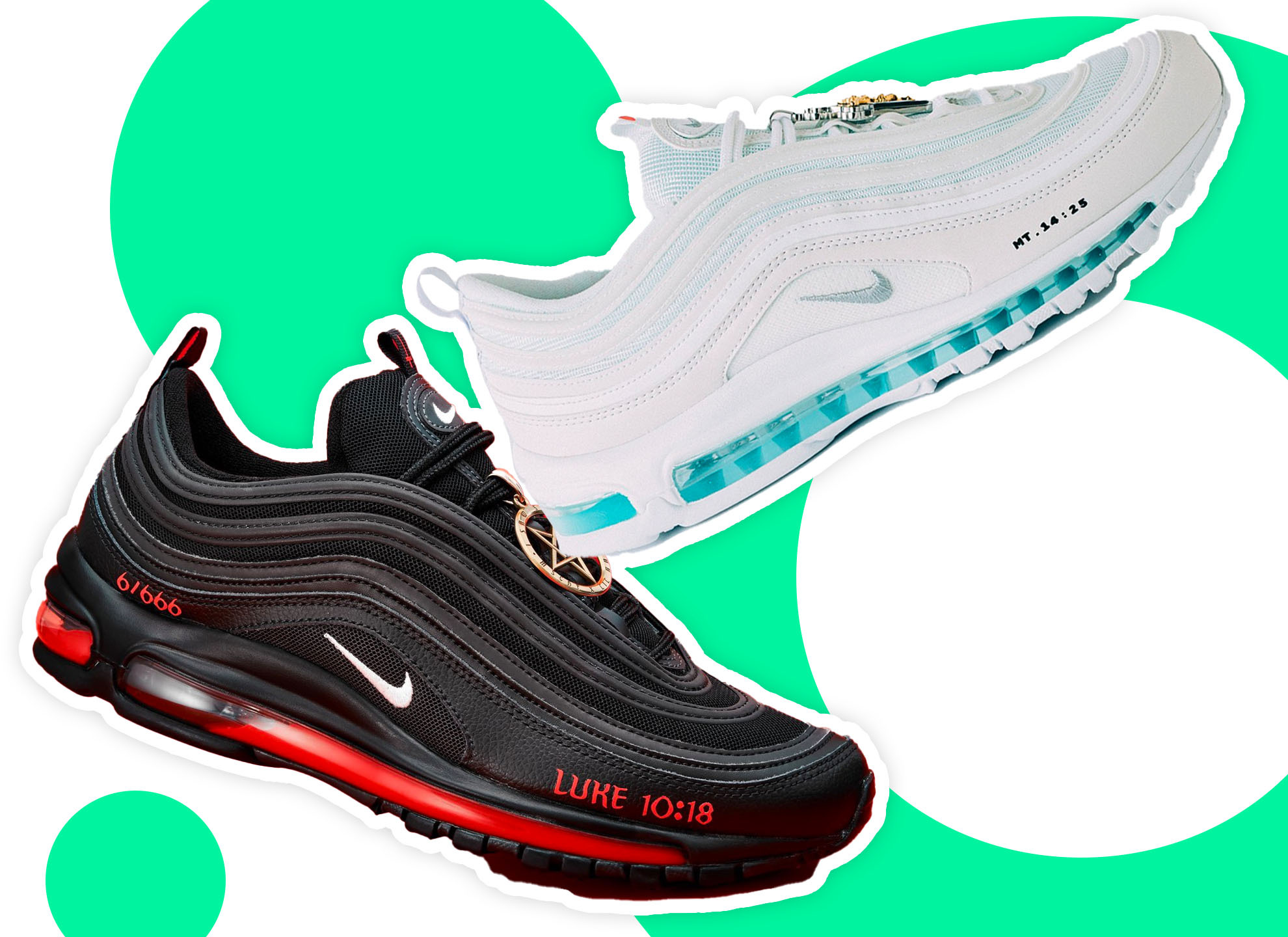Posted on April 7, 2021
Updated on March 13, 2023
2 min read time

It sounds like the lead-up to a terrible punchline, but the esteemed Nike brand is actually closely connected with both the holy water of Jesus and the blood of Satan. The unusual pairing exists because of MSCHF, a group of US product designers, specializing in provocative product releases.
In 2019, they brought new life into a pair of Nike Shoes, rebranding them as ‘Jesus Shoes’ and placing holy water, from the River of Jordan, into their soles. Just last week, they did it again, radically launching a ‘Satan Shoe’, in collaboration with rapper, Lil Nas X. This time instead of holy water, they included a drop of real human blood in the shoes. The Jesus shoe sold for $4,000 and the Satan shoe for $1,018. Yet, which one caused more strife in the media? Satan, of course, resulting in Nike suing MSCHF for trademark infringement. And what happened with the Jesus shoe? Nothing.
Using one of our 14 Marketing Levers, Proposition, we’ll be exploring why Nike reacted in this way, whether it’s justified and if these actions will ultimately work to strengthen or weaken the brand.
So, what’s Proposition? It’s one of our 14 Marketing Levers that enable Brand Managers to run successful, thriving brands. If you run into a problem with your brand, these Marketing Levers are sure to sort you out. They range from Merchandising, Partnerships, and of course, Proposition.

The Proposition Lever revolves around a brand’s promise to its consumers, and it represents what the brand stands for, including its core values and beliefs. Once a Proposition is locked, it will guide all brand activities. That’s why these stunts are so problematic for Nike, as they go against their brand promise.
Nike’s Proposition is to provide ‘innovation and inspiration to every athlete in the world’. The brand’s core ethos revolves around inclusivity, and they define athletes as anyone with a body. With this in mind, you can see how both the Satan and Jesus shoe go against this Proposition, as they move the shoe away from an innovative, inclusive space, into an exclusive group, the Jesus shoe catering for the religious sector, and the Satan shoe towards Lil Nas X’s fans.
Both shoes posed a threat to Nike’s Proposition. So, to remain consistent with their brand identity, Nike needed to take action, to show their brand wasn’t affiliated with the views of MSCHF. Remaining silent would risk Nike’s well-established Proposition becoming muddled and confused with the values and beliefs of the target audiences and the creators of these designs.
Nike was backed into a corner with the Satan shoe, and after receiving so much negative press from religious factions in the US, they were forced into action. The brand couldn’t be seen to endorse a shoe that was an embodiment of Lil Nas X’s sexuality and openly satirized the Christian religion. This could have had serious ramifications on their brand and may have affected their relationships with conservative consumers.
But their decision to sue was problematic, as they chose to take a stand on the Satan shoe but turned a blind eye on the Jesus shoe, not wanting to alienate their Christian userbase. So, was the decision to sue Lil Nas X commercially driven, or was it the only option in a brand minefield?
Option 1: Do nothing.
Option 2: Challenge only one brand, Satan or Jesus.
Option 3: Challenge both.
Nike picked option 2, reacting to the product that was most provocatively ‘negative’, choosing Satan and letting the Jesus shoe slide. The concept of Satan is the more dangerous option, as many Christians view it as a direct attack on their religion, since Satan is commonly believed to be the origin of all evil. The Satan shoe is even more provocative here, as it’s not only used to represent the devil, but also to express Lil Nas X’s sexuality, which is in direct defiance of Christian ideals.
So, Satan plus an added layer of sexuality, is where Nike decided to draw the line. We don’t envy Nike. When navigating out of a brand crisis, it’s difficult to find an option that will satisfy everyone.
If we’ve piqued your interest and you’d like to learn more about our other 14 Marketing Levers, take a look around.
Our intelligent platform will take your brand further, faster.
Don’t believe us?
© 2020-2023 ProQuo AI International
All rights reservedWebsite by Blend